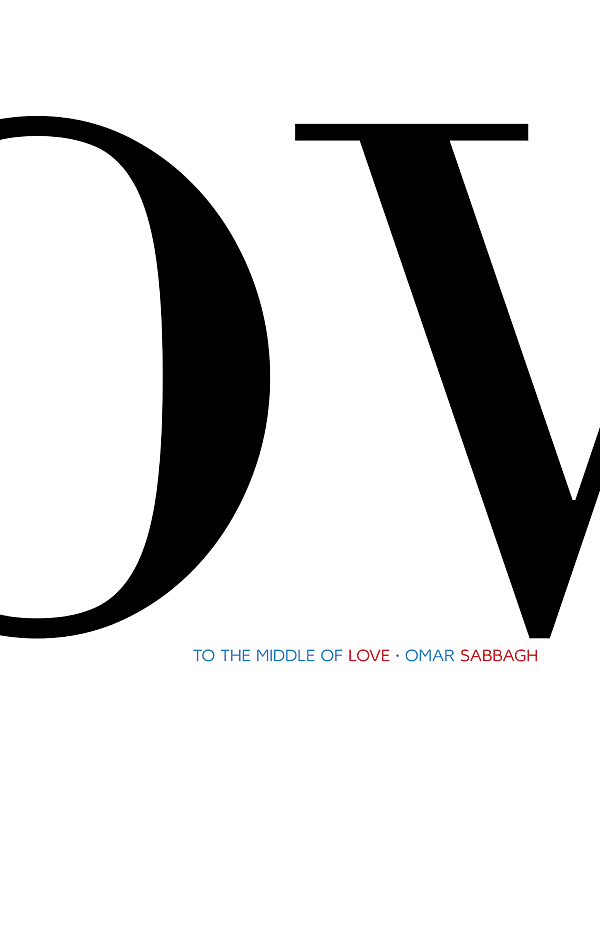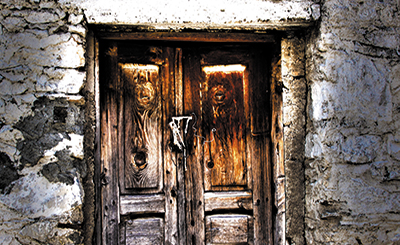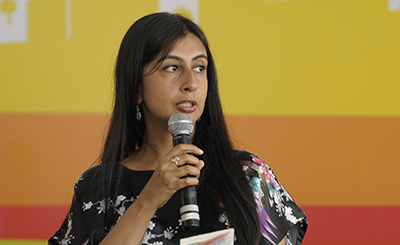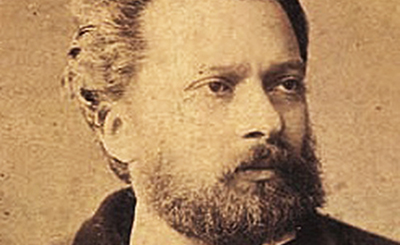
To the Middle of Love
By Omar Sabbagh
Cinnamon Press,
Rs 589, pp 92
This collection, Omar Sabbagh’s fourth, crackles with energy. At different moments self-confident and self-deprecating, passionately direct and challengingly convoluted, Sabbagh never gives himself — or his reader — an easy ride.
There’s a tumble of imagery — contemporary, Biblical, classical, sexual, and throughout the whole sequence an overriding sense of the power of words and of poetry, both to illuminate human experience, and also perhaps to delude or let us down.
For me, it is the way in which these perceptions are posed one against the other that gives the work as a whole its touching humanity. In one poem, the poet cries ‘Where were You when I didn’t know/Why the world was beating me like trampled snow?’ In a Coda, Sabbagh traces the poems at least in part to a return to earlier experience, ‘an eighteen year-old boy on the cusp of a psychotic break of sorts’, and links ‘all this prosy poise…all this swan-neat periodicity’ to ‘the fact of my reigning anxiety.’ This is an anxiety that’s able to zoom in on minutiae, then fly off like a mythical bird into realms of the surreal, carrying the reader on the back of its sheer exuberance.
The collection opens with a birth, ends with lament and a meditation on suicide, and in between, offers inventive twists on the age-old stories of identity, love and grief. It is peopled by family, lovers and presiding spirits, and very much by the spirit of place — Lebanon in general, Beirut in particular.
Inter-textual connections and cross-currents abound: there’s an acknowledgement in the Coda of a debt to Wilde’s ‘De Profundis’; sonnets inspired by St Augustine’s ‘Confessions’ rub shoulders with Milton’s Satan (applauded as ‘a big and painful pin in the side of those/Of better mould’!); a gnomic ‘Bird in a Tree’ with something in common with Wallace Stevens’ blackbird; the title poem an exploded sonnet in honour of Heaney.
Sometimes the poems resist literal reading, metaphors floating just out of reach but not beyond emotional comprehension. Images of wounding, mauling, suturing, dressing and scarring are held close in the poet’s self-portrayal, as when he describes himself as ‘an undressed wound/Upon the hills and mounds of my kin.’ Similarly, in a later poem drinkers are ‘worn wounds entering the bar.’ Unflinchingly conveyed, there’s an undercurrent of recent history here.
Anguish is never far below the surface. In (‘La Veuve’), a woman (possibly the poet’s mother?) marvellously ‘wears black, like sorrow, a tall minaret to her self,’ in an untrustworthy show of bereavement. As in other poems, the connection he feels is an entanglement of the cerebral with the physical: ‘Eyeing her, I seem to tug at her: like a poem to its sounds…’
But there’s celebration too, in the midst of trouble. In ‘The Cedar Never Dies’, a love poem to his beleaguered country, he hymns the symbolic tree’s ‘never-ending rungs’, in ‘the language in which I body my caress.’ Somehow the inversions in this phrase wrap body, love and language closer together, a poetic caress.
The love of words themselves, everywhere in these poems, is another joy. Reading through, I had frequent recourse to the dictionary, and was repaid by a sense of additional layering. For instance in ‘Muhajabeen’ (the word for a veiled woman), there are mathematical terms such as ‘surd’ — an irrational number — and ‘copula’ — a word related to probability theory. Both also have other meanings in the register of linguistics — a speech sound uttered with the breath, a linking word. In this way, the poem itself is a dance of veils. As Sabbagh asserts, ‘I won’t tell what girds, what taxes her.’ I’m not saying I know exactly what the poet intends, here; rather that I’m happy to be left with such evocative uncertainty.
At times there is a sense of near-delirium, as words strain, flex and breed others; in an early poem, we encounter ‘syllables… like straining ligaments’. It’s as if Sabbagh, in the body of that young boy wanting to make sense of a painful growing-up, is pulling language apart with both hands, in order to gaze inside. But for me, ultimately, these poems are at their most profound when for brief moments, at ‘the middle of love’, perhaps, they drop the attempt to be ever more complex or to attain a higher level of meaning:
‘and I wonder about
The snow that fell, small but happy bits
Of whitened smiles,
December passed, and yet
how tulips shone
Upon their thrones
Of air and soil…’
To the Middle of Love is a journey of twists and turns; by turns moving, witty, and surprising, it’s well worth the fare.
The book is available on http://www.cinnamonpress.com
More from The Byword
Comments
*Comments will be moderated











